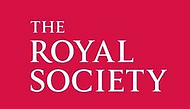
UNDERSTANDINGGENE FUNCTION USING CRISPR SCREENING
SEPTEMBER 15TH - SEPTEMBER 17TH, 2021
Thank you so much for participating in the course!
We hope you enjoyed it.
Talks can be accessed on the website. Take a look at the Videos' tab for more details.
/ ABOUT THE COURSE
Advances in genomics, transcriptomics and sequencing technologies have contributed immensely to discovering molecular alterations that develop into potential biomarkers and therapeutic targets. But how do we know whether these alterations play a causal role in a particular phenotype or disease? We test it by modulating gene activation, repression, expression or even inserting a candidate mutation.
With the advent of large-scale gene editing technologies, especially those using CRISPR/Cas9, a specific set of genes of interest, or even an entire genome, can be modulated at once in a population of cells. This strategy has been very successful for understanding gene function and uncovering cellular dependencies.
This course is free of charge and open to graduate students, post-docs, and other participants interested in learning how to perform CRISPR/Cas9-based screens in mammalian cells.
* It is not about learning how to modulate one gene of interest in a cell model. It's about learning how to modulate several genes at once to find out which one is your gene of interest.
TOPICS
-
Concepts of CRISPR/Cas9 and available tools and applications
-
Using CRISPR/Cas9 for drug discovery
-
Design of target specific CRISPR/Cas9 tools
-
Confirmation and validation of genome-edited cell
-
Concepts of CRISPR/Cas9 screens and applications
-
Designing and performing a CRISPR/Cas9 screen
-
Bioinformatics strategies to analyse CRISPR/Cas9 screen data
-
Strategies for screen validation
-
Limitations of CRISPR-based screens, strategies to troubleshoot experimental steps
/ PROGRAMME
This virtual course will take place between the 15th and 17th of September, starting at 10:00 am (GMT-3/Brasilia).
We will use Zoom for the lectures and discussions, and Slack for instant messaging of instructors and participants.
The course lectures will be followed by discussions between participants and instructors and will be presented live.
Some material will be recorded but participants must be available to attend sessions at these times.
On Day 1, we will have three lectures by renewed scientists with extensive experience in the field covering topics from the basics of CRISPR/Cas9 strategies to how to use CRISPR for drug discovery.
On the second and third days, participants will learn how to design, execute, analyse and validate a pooled CRISPR/Cas9 screen. Important technical knowledge of all steps will be discussed, including limitations, strategies for troubleshooting experimental steps, and quality control of the reagents, libraries and datasets.
At the end of the course, participants will have the opportunity to discuss in detail a specific idea or example of CRISPR/Cas9 screens with the instructors. This workshop will be offered to a limited number of participants, preferably those who attend the full course, are familiar with CRISPR/Cas9 strategies and plan to perform a screening in the short term.
15
WEDNESDAY
10:00-11:00 (GMT-3/Brasilia)
Applications of CRISPR technology for Genetic Screens
John Doench, Broad Institute of MIT and Harvard, USA.
11:00-12:00 (GMT-3/Brasilia)
Next-generation genome editing technologies
Holly Rees, Beam Therapeutics, UK.
12:00-13:00 (GMT-3/Brasilia)
Using CRISPR to find tomorrow’s drug targets in cancer
Ultan McDermott, Astrazeneca, UK.
16
THURSDAY
10:00-11:00 (GMT-3/Brasilia)
A Practical Guide to CRISPR Screening
Victoria Harle, Wellcome Trust Sanger Institute
11:00-12:00 (GMT-3/Brasilia)
A Practical Guide to CRISPR screen analysis
Victoria Offord, Wellcome Trust Sanger Institute
12:00-13:00 (GMT-3/Brasilia)
So you’ve done your CRISPR screen now what?
David Adams, Wellcome Trust Sanger Institute
17
FRIDAY
10:00-10:30 (GMT-3/Brasilia)
Genome-wide CRISPR screen identifying human SIN3B synthetic lethal targets
Larissa S. A. S. Matsuyama, University of Sao Paulo, Brazil
10:30-11:00 (GMT-3/Brasilia)
CRISPR activation screen in mice identifies novel membrane proteins enhancing pulmonary metastatic colonisation
Louise van der Weyden, Wellcome Trust Sanger Institute
11:00-11:30 (GMT-3/Brasilia)
In vivo screen identifies calcium signaling as a determinant of T cell sensitivity in melanoma.
Juliana Kenski, The Netherlands Cancer Institute
11:30-13:00 (GMT-3/Brasilia)
Lunch Break
13:00-15:00 (GMT-3/Brasilia)
Project-focused discussion workshop
/ INVITED SPEAKERS

John Doench
Director of research and development in the Genetic Perturbation Platform and institute scientist
Broad Institute of MIT and Harvard, USA.


Ultan McDermott
Chief Scientist in Oncology R&D and Honorary Faculty
AstraZeneca and Wellcome Sanger Institute, UK.

Victoria Harle
Postdoctoral Fellow
Wellcome Sanger Institute, UK.


David Adams
Senior Group Leader and Head of Experimental Cancer Genetics
Wellcome Sanger Institute, UK.

Louise van der Weyden
Senior Staff Scientist
Wellcome Sanger Institute, UK.

Larissa S. A. S. Matsuyama
PhD Student
University of Sao Paulo, Brazil

Juliana Kenski
PhD Student
Netherlands Cancer Institute, The Netherlands.
/ videos
You can now watch the talks from all three days of the course. Click on the videos below to check them out!
Day 1
Day 2
Day 3
/REGISTRATION
REGISTRATION DEADLINE : Closed
Evaluation Questionnaire:
Your opinion on the course would be greatly appreciated! This will be helpful to offer new courses in the future.
If you want to participate on evaluating the course, please click on the link below to answer an anonymous questionnaire.
certificate of participation:
-
Participants who want to request a certificate of participation from this course, will be directed to a form by clicking on the link below.
-
You should choose which sessions you participated or if you attended the full course.
Thank you for your atendance and stay tuned for future courses!
you may contact us at:
crisprscreeningcourse@gmail.com
Organizing Committee:
Patricia A. Possik David Adams
Support:



